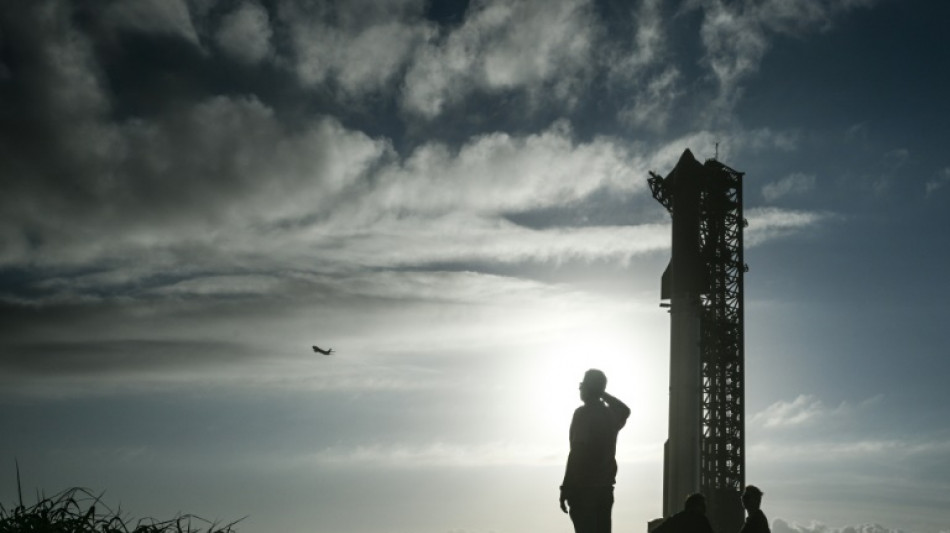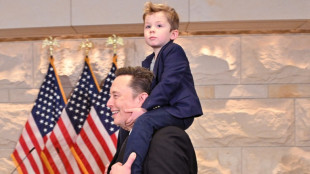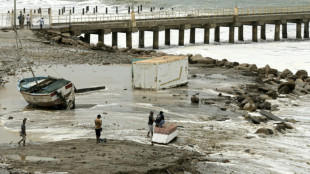

SpaceX set for Starship's next flight, Trump expected to attend
SpaceX is poised for its next Starship megarocket test flight on Tuesday, with US President-elect Donald Trump expected to witness the second ever attempt to catch its descending booster stage in the launch tower's "chopstick" arms.
It comes just over a month after the company first pulled off the technical tour de force that underscored its position as the world leader in reusable rocketry.
"It was a beautiful thing to see," Trump declared in his election night victory speech, dramatically recounting the feat.
US media outlets have reported on Trump's plans to attend -- further backed by Federal Aviation Administration orders showing flight restrictions for VIP movement have been imposed around the area during the launch window, which opens at 4:00 pm (2200 GMT) from the company's Starbase in Boca Chica, Texas.
Meanwhile, the usual air traffic restrictions over Trump's Florida residence will be lifted at the same time.
SpaceX CEO Elon Musk has been a constant presence at Trump's side since the Republican's election victory, joining him at meetings with Argentina's President Javier Milei and even at a UFC fight. Trump's decision to travel to Musk's home turf is the latest sign of the burgeoning bond between the billionaire duo.
SpaceX will be looking to prove the first catch wasn't a fluke, after Musk revealed -- indirectly, through audio shared on X of a discussion with engineers days later -- that the Super Heavy booster had come perilously close to crashing.
The world's richest man shared a three-minute video flaunting his hack-and-slash skills in the "Diablo IV" video game, during which sharp-eared viewers caught an employee briefing him that "we were one second away" from a system failure that could have ended in catastrophe.
Tuesday's launch will mark the fastest turnaround between test flights for the world's most powerful rocket, a gleaming, stainless steel colossus central to Musk's vision of colonizing Mars and making humanity a multiplanetary species.
NASA is also counting on a specialized version of Starship to ferry astronauts to the lunar surface later this decade under its Artemis program.
- Daylight splashdown -
Flight six will revisit many of the goals from flight five, with some updates.
If all goes as planned, the returning booster will decelerate from supersonic speeds, creating sonic booms as it nears the launch tower. There, a pair of massive mechanical arms will reach out to catch it and bring it to a halt, around eight to ten minutes after liftoff.
Starship's upper stage will make a partial orbit of Earth, reenter the atmosphere and splash down in the Indian Ocean a little over an hour later, but this time in the daylight, providing better conditions for visual analysis.
Technical goals include reigniting Starship's Raptor engines for the first time in space, and carrying out new heat shield experiments in what will be the final flight for the current generation of Starship prototypes.
The next bloc will feature redesigned forward flaps, larger propellant tanks, and new-generation tiles and thermal protection layers as the company strives towards a fully reusable heat shield.
- Musk riding high -
The flight comes as Musk is riding high on Trump's November 5 White House win, having campaigned extensively for the returning Republican leader, as well as donating tens of millions of dollars from his own fortune to the cause.
He has been appointed to co-lead a new "Department of Government Efficiency" -- whose acronym DOGE is a reference to an internet meme and a cryptocurrency that Musk heavily promotes.
That in turn has led to concerns Musk will face possible conflicts of interest if he's seen to influence government regulators to the benefit of his six companies, including SpaceX and its flagship project, Starship.
Ahead of the fifth flight, SpaceX wrote a lengthy post complaining that "the licensing process has been repeatedly derailed by issues ranging from the frivolous to the patently absurd," singling out a "superfluous environmental analysis" for a launch delay.
N.Behan--IP



